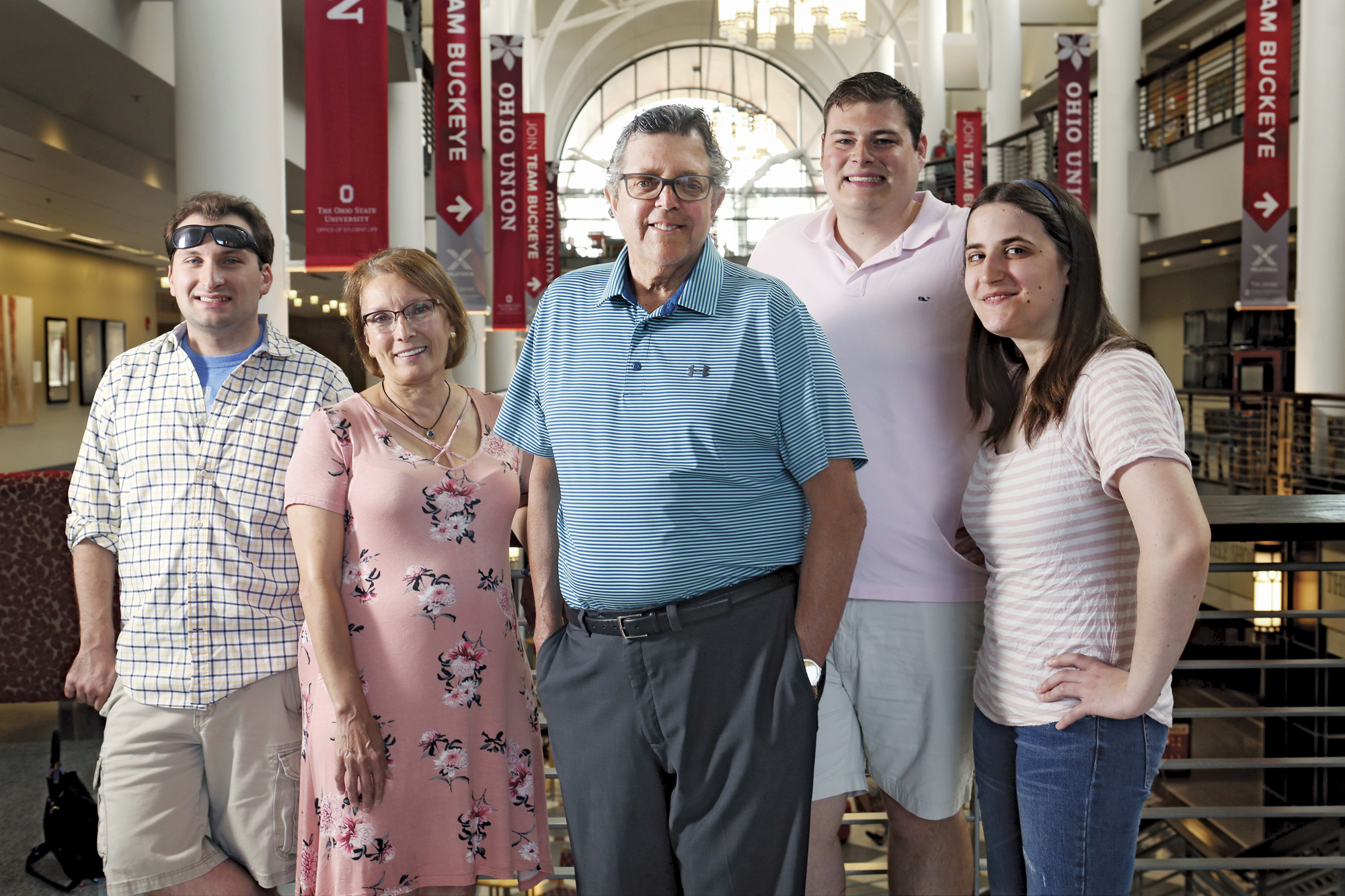Tom Fish
Kind, caring and dedicated? Yes. Patient? When it comes to waiting to get things done, not so much. Tom Fish doesn’t have time in his day for talking about solutions. He’s in the business of finding them himself.
The recently retired director of social work and family support services at Ohio State University’s Nisonger Center has spent his nearly 40-year career helping youth and young adults adapt to living with their developmental disabilities, trying some things that work and others that don’t.
“I try to go where I think people need help,” said Fish, 71. “I don’t have much patience for people who want to just talk about things.”
Yet when Fish is interacting with people who have developmental disabilities—the place where he says he is most comfortable—his patience appears limitless. He views those interactions as opportunities to help students grow and learn little lessons in social cues, where he says emotional intelligence is cultivated.
“All too often we think we can solve people’s problems or we can make them so-called ‘better,’” he said. “A lot of times it’s more a matter of helping them connect with people who will like them for who they are and figure out ways that they can be happy without being who we want them to be.”
Through the years, Fish has conceived of numerous ways to help those with developmental disabilities interact in a more organic way—from sibling retreats to weekly book clubs—lamenting the programs that haven’t worked and celebrating the ones that have.
To be clear, the successes have far outweighed the failures, though Fish would never say as much. His colleague Jillian Ober, a program manager at the Nisonger Center, said the ideas devoped by Fish and the individuals those ideas have helped are too many to count.
“He’s always busy,” Ober said. “Always thinking, always creating.”
A social worker by trade, Fish said he was always drawn to working with underserved people, adding that he doesn’t have the patience to practice more traditional social worker roles such as couples counseling.
Fish retired in June and plans to spend more time visiting his three adult children and being a grandpa to his two grandkids. Yet Fish won’t be able to be truly retired for long. He is working on a book of short stories aimed at youth with developmental disabilities and will stay heavily involved in book club activities. For Fish, retirement is simply another opportunity to find a new avenue for his passion for helping people, particularly through literacy.
Recently, Fish has put much of his time and energy into weekly book clubs. The idea started 16 years ago when thinking about ways those with developmental disabilities could excel.
“The Special Olympics have been around for a long time. The hallmark of Special Olympics is that people are capable of being athletes like anyone else,” Fish said. “It dawned on me at the time that maybe there are other things that people can do that other people in our society do as well, and a book club came to mind.”
Since its inception, the book club concept has spread to 33 states and several countries. And Fish will stay heavily involved in expanding the program.
“The whole purpose is for people to come together and enjoy one another’s company around literacy, which oftentimes is not a pursuit that adults with disabilities have,” he said.
Fish says he has been drawn to people with developmental disabilities throughout his life, sparking his inevitable career choice. He works most frequently with people across the autism spectrum and those with Asperger’s Syndrome. To him, it’s the most rewarding work that exists.
“I consider it a privilege. They make me more happy than I make them,” he said. “Sometimes I would rather be with people with disabilities than people without. Not always, but probably more often than not.”
